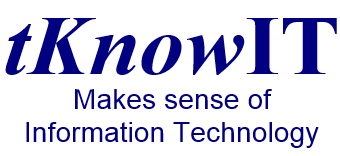The end for Windows XP
On 8th April 2014 Microsoft will end support for both Windows XP and Office 2003. Anyone running their business network with Windows Server 2003 servers should be already planning for end of support for this in 2015.
 Windows XP has been around for a long time and has been so popular that many users have stuck with it rather than moving to newer operating systems, probably because it was much more reliable than Windows 95, 98, Me (who remembers that one) and 2000 but also better received than its successor, MS Vista. Designed with internet and email access built-in, Windows XP connected with ease to printers, cameras and other peripherals and brought in new security measures for PCs.
Windows XP has been around for a long time and has been so popular that many users have stuck with it rather than moving to newer operating systems, probably because it was much more reliable than Windows 95, 98, Me (who remembers that one) and 2000 but also better received than its successor, MS Vista. Designed with internet and email access built-in, Windows XP connected with ease to printers, cameras and other peripherals and brought in new security measures for PCs.
If for no other reason, security should be why you replace your machine before April 2014. You will be familiar with the weekly updates your machine receives from Microsoft and many of these updates are to resolve security ‘holes’ found in the operating system. If you are running some internet security software this is unlikely to offer protection for Windows XP from April 2014 or shortly afterwards. This makes online banking and purchasing a very unsafe thing to be doing on a Windows XP machine.
Since the very unpopular MS Vista, and after listening to customers, Microsoft’s Windows 7 software worked with a much wider range of hardware, peripherals and software. Now Windows 7 has been superseded by Windows 8, designed to be easy to use on touch screens. This has not always gone down well with laptop and desktop users who have found it ‘long-winded’ to shut-down and some are annoyed by the ’tiles’.
Over the years Microsoft have released service packs to Windows operating systems which are typically a collection of bug and security fixes. Microsoft has recently released Windows 8.1 which could be taken as the first service pack for Windows 8 and reintroduced the Start button to make it easier to showdown desktops and laptops. Windows 8 also introduces and integrates more ‘cloud’ services.
So if you’re a Windows XP user where should you go next?
Jump ship from Microsoft-based PCs to Apple-based Macs.
Typically at the high-end of the price range of computers but users typically complain less about problems. You can also still get a version of MS Office for Macs if you need to create documents, spreadsheets and prefer MS Outlook as the email client.
Move to a Linux machine.
More difficult to source and more typically built by someone who is familiar with PCs and operating systems. They can work out to be fast and cheap.
Move to a Chrome machine.
Typically you will store everything in the cloud and rely upon a decent internet connection at all times.
Purchase a new Windows 8 PC.
Most computers in the high-street stores and online stores are still Windows based machines. Many of your programs can be reinstalled but also your data (documents, photographs, etc.) will be easy to transfer.
What if you’re an Office 2003 user?
You can upgrade to MS Office 2013 or one of the new MS Office subscription options.
Alternatively consider the free LibreOffice/OpenOffice Suites if you’re not bothered about Outlook for email and don’t need all the MS Office features but still need to edit Word/ Excel documents.
If you are a business user then feel free to try out one of the Microsoft Office365 options on a free 30 day trial or call tKnowIT to assist you.

You must be logged in to post a comment.